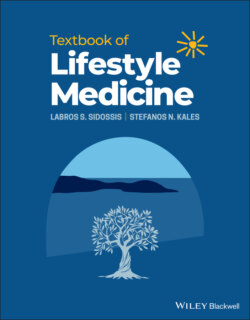Читать книгу Textbook of Lifestyle Medicine - Labros S. Sidossis - Страница 70
Key Point
ОглавлениеNutrigenomics is the epigenomics sector focusing on the effects of food and food constituents on gene expression.
Moreover, variations in the gene‐expressing adipokine (hormone) adiponectin have been implicated in weight gain in a cohort of middle‐aged and elderly individuals at increased risk for CVD. Nevertheless, following a Mediterranean diet for three years proved to be advantageous in reversing weight gain among the carriers of the adiponectin gene SNPs, compared to noncarriers. Similarly, when the carriers of the fat‐mass obesity (FTO) polymorphism, which is responsible for increased body weight, followed a Mediterranean diet pattern for three years, they appeared to have the lowest increase in weight after intervention, compared to the noncarriers.
The phytochemicals present in fruits and vegetables, herbs, and spices have been shown to be protective not only against oxidative stress but also chronic low‐grade inflammatory responses, which constitute established risk factors of age‐related brain impairments. Moreover, phytochemicals hold the potential to attenuate the oxidative damage of macromolecules, such as DNA. They can also protect against the deranged expression of genes, which can progressively lead to debilitating effects on brain function and the advent of brain disorders associated with aging.
